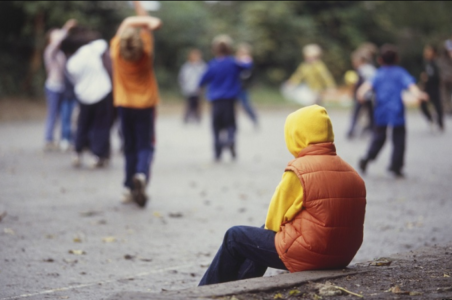Reflecting on a Complex Relationship and the Nature of Parental Love
My hand hovers near the photograph on my wall, poised to take it down, but ultimately withdraws. It features my father, his smile wide, with my sister and me flanking him. He had come to my house for dinner that day, and in front of us sits a cake—a testament to a successful Operation Birthday Surprise. But that was years ago.
Now, my father and I haven’t spoken in a year and a half, a stark contrast to our regular weekend dinners in 2020. If you asked me what led to this silence, I couldn’t pinpoint a clear answer. Maybe we said something that rubbed him the wrong way. Perhaps I picked the wrong restaurant. Or maybe he simply felt stifled by our increased interactions.
Whatever the reason, we’re not talking anymore, and I wonder if that photograph deserves to remain on my wall.
Family Dinner Weekends
My father has always been a stoic figure—someone who rarely speaks, often absorbed in work, yet endearingly goofy with his children. After my parents separated when I was six, he moved out, but they maintained a friendly relationship. My memories include stretches of time spent with him, interspersed with long absences, usually filled with weekend family dinners.
As time passed, these gatherings dwindled, giving way to amicable silence. No calls, no weekend meetups—just a cycle of communication that would start anew after someone made the first move. During those hiatuses, my family offered enough love and distraction that his absence didn’t hit too hard.
I grew up reading the Berenstain Bears, a series that shaped my vision of a nuclear family, one I longed for throughout my childhood and adolescence. My father made us laugh during those dinners, reinforcing my belief that we could all be happy living under one roof. Little did I know that light-heartedness requires little emotional investment. The deeper issues arising from our different communication styles created a wedge between us that persists.
Breaking Down in IKEA
From 2016 to 2020, our weekend dinners grew more frequent than ever before. Even as I recognized the emotional distance between us, I enjoyed my father’s company. He still had the ability to make me laugh.
During one dinner at Putien, when asked about food allergies, my father quipped, “We’ll find out after we eat.”
In my teenage struggles with exams, those family dinners became a safe haven where I could soak in the feeling of a close-knit family. I even started to miss my father in his absence.
Despite our increased visits, the old patterns remained. We still fell back into silence when life got busy. However, my father became more prone to moodiness, likely due to significant changes in our family dynamics. My sister’s marriage and subsequent move away was bittersweet, perhaps harder for him to process. During her wedding registry, he sat alone on a couch, seemingly lost amidst the celebration.
I began to wonder if he regretted his past absence and if he felt like an outsider as we grew up. When he retreated into his moods, I was left guessing what was bothering him, feeling helpless in my desire to support him.
One December evening, after a particularly tense dinner, I was tasked with calling him to suggest a break from our weekly meetings. I was in IKEA when I dialed his number. His curt response stung, leading me to snap back in frustration. I had never spoken to him that way before. Guilt and anger churned in my stomach as I stood in the bustling store.
It turned out I had called him minutes after he’d decided to cancel dinner, revealing the unfortunate timing of our communication.
Watery Epiphanies
The New Year arrived, but I remained too hurt to reach out. I faced a Chinese New Year devoid of calls—no birthday greetings for him or me. I cried, feeling a mix of sadness and anger. I missed my dad, and it hurt that he didn’t seem to care about our relationship, though I knew deep down that he likely did but couldn’t express it.
I often felt like I was riding the emotional rollercoaster of his moods, soaring during his good days and tumbling during the bad. When venting to a friend, I agreed with his remark that “men ain’t shit,” but I knew it wasn’t true. My father’s shortcomings didn’t stem from a lack of love but from societal conditioning that stifled his emotional expression.
He grew up in an environment that discouraged emotional vulnerability. Expecting him to change now felt futile. I realized that I shouldn’t seek to revive our old relationship. Just as it wouldn’t be fair to demand emotional openness from him, I also shouldn’t allow myself to be swept away by the unpredictability of his moods. The healthiest option was to accept our differences and create some distance.
Distance is the Best Preserver
I haven’t spoken to my father in a long time, and I’ve found that this space helps maintain our relationship. I once thought he should love me in a way I understood, but his love has always manifested differently.
Many people struggle with strained relationships with parents. While it’s challenging, I learned that these differences don’t negate the love we share. Understanding that I can care for someone without needing them to fulfill my expectations is freeing.
This journey toward neutrality is ongoing, but I know I can love my father, even if it doesn’t look like I envisioned. So, I leave the photograph on my wall. While we may not be in touch, he remains an important figure in my life.








